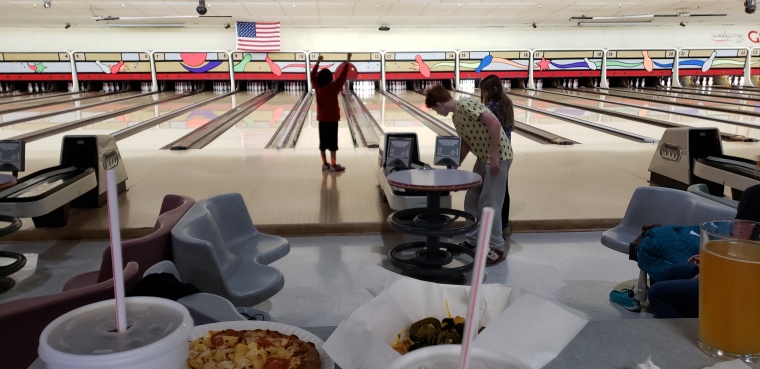It is important to know the stories, beliefs, and perspectives of our cultural groups, so that we can avoid conflicts like yesterday’s in front of the Lincoln Memorial (where “The March on Washington in 1963 brought 250,000 people to the National Mall and is famous for Martin Luther King Jr.’s “I Have a Dream” speech.” — Wikipedia)

NOTE: Please make a conscious choice to whether you will continue to read these thoughts, because once you read them, they cannot be unread. They are not intended to attack any person or group. If you decide to continue reading, you may feel offended during the reading. This is natural. Anytime our current belief system is challenged, we instinctively become defensive, because our instinct is for survival. Our blood redirects itself away from our brain, pumps faster into our extremities, ready to run or fight or hide, as needed. We have begun to enter “crisis mode”, which typically results in fight, flight, or freeze. A crisis is different to some is not a crisis to others. Being unable to find a specific toy may be a crisis to someone, because that toy represents a dream of an upcoming playtime. Being unable to find a particular pair of shoes may be a crisis to someone, because they had a vision of a perfect ensemble to impress someone they are about to meet. Meeting someone new may result in nervousness, which may be a gateway to a crisis response. Being surprised by (or with) something unexpected may result in a crisis, as the subconscious brain presents the instinct to survive. If you choose to continue reading and find yourself upset, I encourage you to check your breathing and your body responses. Are you taking shorter breaths or holding your breath? Are you tensing your muscles? Relax your jaw. Relax your tongue. Relax your ears. Relax your throat. Relax your hands. Relax your stomach. Relax your shoulders. Breathe… … … … … … And when you are ready, continue to read. Continue to listen. Continue to hear perspectives that may be different than yours. Let your mind ask questions. Allow yourself to suspend disbelief. Recognize what you can control, what you can influence, and what can only be of concern. As always, feel free to leave a comment or send a message, or meet with us at First Fridays with Felicia (www.feliciachew.com/firstfridays) or Walk-A-Mile (www.feliciachew.com/walkamile) for conversation, or just to hang out. /Felicia
Yesterday, a young male of what appears to be European descent stared with apparent defiance in the face of Nathan Phillips, an Elder in the community.

There have been many conversations defending and attacking the young man. There have also been conversations defending the young man’s actions.
– “If *he* was “participating”, he should have been chanting.”
– “Nathan Phillips got into *his* space.”
– “*He*’s a kid. The chaperones / teacher-in-charge / Principal should have done something.”
– “*He* and his classmates were doing a class cheer.”
– “*He* should not have been staring at Nathan Phillips.”
– “*He* thought it was a staring contest, so *he* stared into Nathan Phillips’s face because Nathan Phillips stopped right in front of him and stared at *him*.”
The real problem includes a lack of understanding, and judgments (others’ judgments, and our personal judgments) that we place on culture. People are becoming more aware and mindful; people are becoming “woke”. “Woke” folk cling to words like “privilege”, while unwoke folk become recalcitrant, and cling to phrases like “hard work”. “Woke” folk feel guilty for past transgressions, and have a sense of urgency for righting wrongs, and avoiding future problems. Unwoke folk see no reason to change.
We can break barriers by participating in meetings like the Mexican American Parent Advisory Council which provides opportunity for voices to be heard, and stories to be shared.
We can ensure that policies, processes, and budgets provide for continued education, and accessible and affordable programs and services (like the Mexican American Parent Advisory Council), that break barriers, and promote healthy boundaries for each of us and all of us, by ensuring that opportunities to share perspectives exist not only in name, but also in practice.
How?
1. Visit spaces where people gather… like laundromats, coffeehouses, grocery stores, rehab centers, banks and credit unions, bookstores… without pomp and circumstance, without news media, person to person, one conversation at a time. Talk with everyone, and share space with others, including meals with strangers at Dao’s Tai Pan (225 N Wilmot, across the street just south of the Murphy-Wilmot Library).
2. Engage in conversations with electeds, leaders, and supervisors who represent people in their respective fields (like School Superintendents and Library Managers).
3. Amplify the voices of others, by talking about the work they are doing (like Lucia, a student from Tucson High, who spoke about the impacts of mental health on students, at the Call to the Audience at the TUSD Board meeting on January 8, the day Ms. Leila Counts and Ms. Adelita Grijalva were sworn in; and Linda Laird’s work to provide books to classrooms).
4. Be transparent and be accessible.

Felicia Chew is a trained crisis response volunteer for the Victim Services Division in Pima County. She is a former classroom teacher, Summer School Prinicipal for Lee Junior High, and former Interventions Coordinator for the Woodland Joint Unified School District. Felicia served as a member and Chair of the City of Tucson Citizen Police Advisory Review Board. Felicia served as a member of the Amphitheater Public Schools Community Advisory Council and Teacher Advisory Council. Felicia served as a Representative of Utterback Magnet Middle School for the Tucson Educators Association. Felicia is a member of the Reid Park Zoo, Flandrau Planetarium, National Organization of Women, Sustainable Tucson, Sonoran Desert Homeschoolers, the Vantage West Credit Union and RepresentUS. Felicia appears regularly as a guest of Wake Up, Tucson and is becoming a frequent guest on the John C. Scott Show. Felicia is an artist, musician, choreographer, and writer. Felicia is a presenter for the Environmental Education Exchange, and owner of Felicia Chew Community Projects. Felicia is campaigning for the District 3 Seat on the Pima County Board of Supervisors (2020). Felicia is committed to fostering a strong and healthy community for #EachOfUs and #AllOfUs
To learn more about Vote Felicia Chew, “Like” and “Follow” www.facebook.com/chewfortucson and www.twitter.com/feliciachew19; and subscribe to the blog on the web at www.feliciachew.com (scroll to the bottom of the page).
“We are each a piece of the puzzle of life. Without each of us, our picture is incomplete.”



